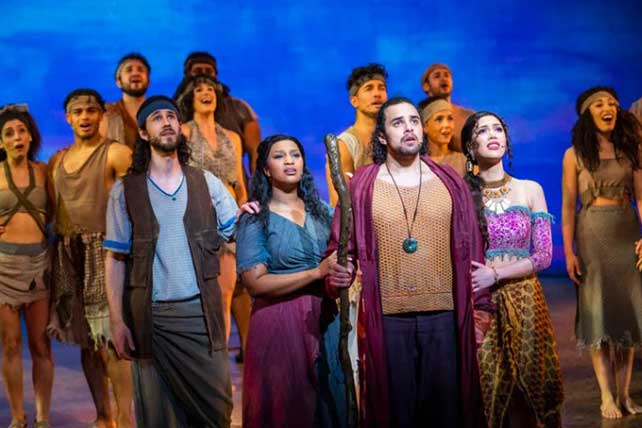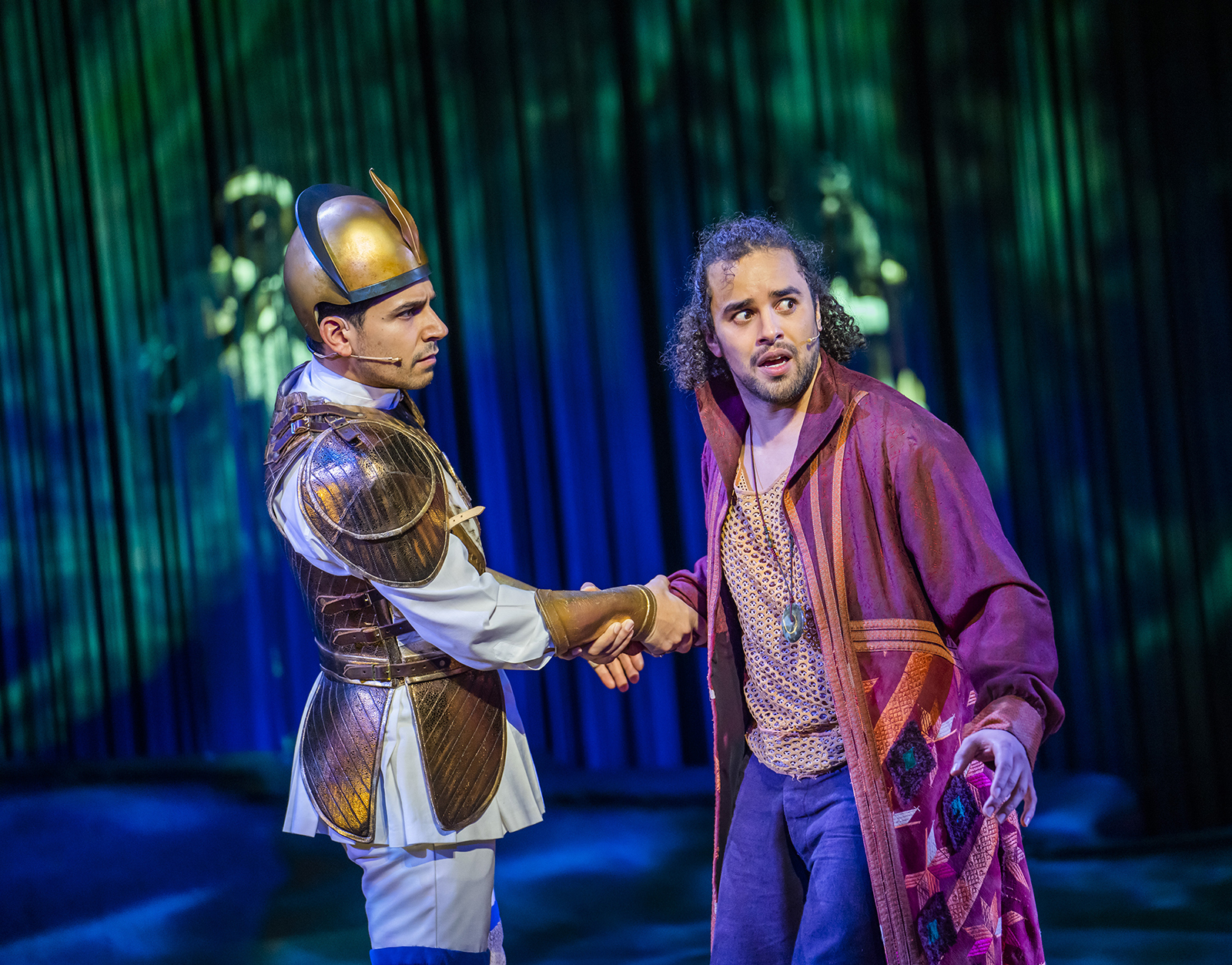One of the most distressing elements of the Moses story is the death of Egypt’s firstborn sons. Can you talk about your approach to staging this moment?
It’s a central moment in the story that, in our telling of it, is devastating to Moses. Even though it allows Moses to achieve what God has asked him to do, which is to free the Hebrew people, it comes at a terrible cost because all of these babies die, and the child of his brother Ramses dies. And so handling that moment, we wanted to do it in a way that was very emotional for the audience, but also that built on this theatrical style we created for the show which asks the audience to use their imagination in filling in some of the gaps. So I’m not going to give it away, but we tried to do that. But then that moment is followed by Moses’ reaction to this horrible devastation that’s been wrought, kind of by him, even though he didn’t intend it to go the way it did. And he has this moral crisis of, was it all worth it? And he says, for the rest of my life, I’m going to have to live with this. How can I do that? And I think to allow this famous figure of Moses to go into his own human emotions, and for the audience to get to experience, what would this be like to actually have to live through? It’s one of the emotional highlights of the show. And then in our production, it motivates the very famous Academy Award-winning song “When You Believe.”
A scene from “The Prince of Egypt: The Musical” at Dominion Theatre in London in 2021. (Courtesy photo)
The show also includes a new moment of reconciliation between Moses and Ramses. What was the thought process behind including that scene?
I think in the end, the show is the story of the relationship between Moses and Ramses as brothers. It’s one of the things that makes the show moving and fun, because of the energy and humor in their relationship. And I think in the end, even though they can’t continue to live as brothers in the way they did when they were young, even though the world has pushed them apart physically and emotionally and culturally, we wanted to say that they still love each other, and they still come to see the other person in a way they didn’t at the beginning of the show. That journey of maturation, that journey of how the relationship between these two brothers evolves and falls apart and comes into conflict, but ultimately has reconciliation, I think is an important part of the message of the show.
What message might the show have to offer viewers now, over two decades after the film’s initial release?
I think the show is ultimately about people trying to deal with events and situations and changes in the world that are larger than themselves. And I think we are all facing a world where there was a pandemic, there are wars happening, and whatever side you may be on in any of these conflicts, they are overwhelming at times. And the show tries to deal with, how do we as human beings take action? How do we have agency? And how do we accept there are some things we can’t control? And how do we still put good into the world under those circumstances, or try to do good? I think that’s an essential question we’re all struggling with right now. So I think the story is very timely. Of course, there is a conflict going on in the Middle East right now. And I think the show can’t help but make people think about that. But I think the show is about humanity. It is about the Hebrew people. It’s about the Egyptian people. It’s about people in conflict and how, as human beings and family members, and partners and friends, can we try to navigate these conflicts that can seem out of our control?
This article originally appeared here.


